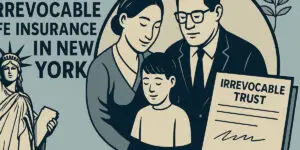To make estate plans for your digital assets, you have to start by determining what digital assets you own, how you own them and where they are held. The truth is you may not even be aware of all your digital assets. You may have forgotten all about that crypto currency wallet where you bought a few coins. They may turn out to become quite a fortune in a few years. To be safe, you would need to keep track of your login details to all your digital accounts including email and other social media accounts you use for business.
You may think you own an asset but what you really own is a non-transferable right to use the asset. So you can’t transfer such an asset to a loved one via your estate plan. It’s essential you check the Terms of Use for each asset you are inventorying.
Your digital assets includes;
Digital assets include any of the following:
- Websites and Blogs
- Online financial accounts (including insurance, brokerage, credit cards, and retirement plans)
- Digital wallets and prepaid apps
- Digital devices such as computers, flash drives, digital cameras and smartphones
- Online currency (Cryptocurrency, bitcoin etc)
- Social media accounts
- Online retail accounts and apps
- E-mail accounts and text messages
- Online accounts for bill pay, banking and investments
- Photo and video-sharing sites (Flickr, YouTube, Vimeo)
- Software, music, movie, and television show collections (Netflix, iTunes, HBO)
- Phone passcode.
How to make Estate plans for your digital assets
Documentation of all your digital assets
Make an accurate documentation of all your digital assets; log in usernames and passwords as well as their location. To enable you keep all of this information in one place, you may set up an account with a digital password manager.
Designate a digital executor to your digital assets.
You are to provide your digital executor with log in details and passwords to your accounts, websites, emails, etc. And provide instructions on how he or she is to manage these online platforms after your death. You would be leaving your login details to someone when you pass away. Now you want to be sure that person is someone you can trust. However, you can always specify how you want the digital assets managed by your executor before passing down to the beneficiary. But most importantly, you have to be sure no one else has access to your login details. If there is, then fraud and theft wouldn’t be too far away.
Your email is one of your most important digital asset as it often contains a host of log in information to other online accounts which you may be handling, including banking and bill payment. Ensuring that the password to your email account is accessible to only your most trusted loved one or Digital Executor at your death.
Remember that not all of your online assets may be well handled by one person. In fact, it may be risky putting everything into a single individual’s hands, as a wide range of personal information are often stored online.
Consider what your wishes are. You may leave your social media accounts to be handled by one person, while your online business may be better managed by another. Designating multiple Digital Executors becomes ideal.
Why you need estate planning for your digital assets
There are criminal and data privacy laws that prevent anyone from accessing an account unauthorized. As such, no matter how much good faith your spouse or child has, they cannot access your digital assets except you give them the allowance via your estate plan.
Bottom line
Most people don’t consider it a necessity or probably ignorance on how to estate plans concerning their crypto assets. They end up dying without their family even knowing anything about their assets. As you make plans for your physical assets, do likewise for your crypto and digital assets.
Talk to an estate planning attorney today
Planning for your digital assets doesn’t have to be difficult. Consulting an estate lawyer is the only way to ensure all appropriate formalities are with proper protocol. With this, you stand at better chances of achieving your goals of estate plans with its adequate execution. On the other hand, doing it yourself option may leave you and your loved ones to chances of revoked, invalid and void estate plan documents.
To ensure you get everything right without costly errors, talk to an attorney near you.








